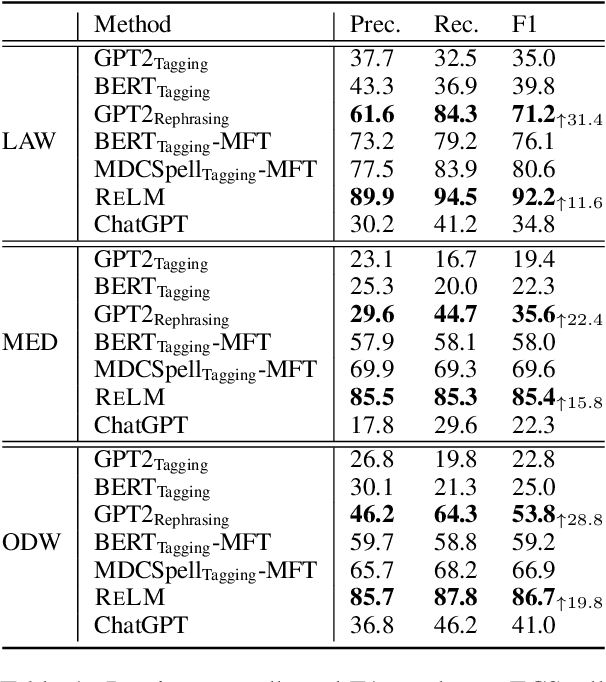Chinese Spelling Correction as Rephrasing Language Model
Paper and Code
Aug 17, 2023



This paper studies Chinese Spelling Correction (CSC), which aims to detect and correct potential spelling errors in a given sentence. Current state-of-the-art methods regard CSC as a sequence tagging task and fine-tune BERT-based models on sentence pairs. However, we note a critical flaw in the process of tagging one character to another, that the correction is excessively conditioned on the error. This is opposite from human mindset, where individuals rephrase the complete sentence based on its semantics, rather than solely on the error patterns memorized before. Such a counter-intuitive learning process results in the bottleneck of generalizability and transferability of machine spelling correction. To address this, we propose $Rephrasing Language Modeling$ (ReLM), where the model is trained to rephrase the entire sentence by infilling additional slots, instead of character-to-character tagging. This novel training paradigm achieves the new state-of-the-art results across fine-tuned and zero-shot CSC benchmarks, outperforming previous counterparts by a large margin. Our method also learns transferable language representation when CSC is jointly trained with other tasks.
 Add to Chrome
Add to Chrome Add to Firefox
Add to Firefox Add to Edge
Add to Edge